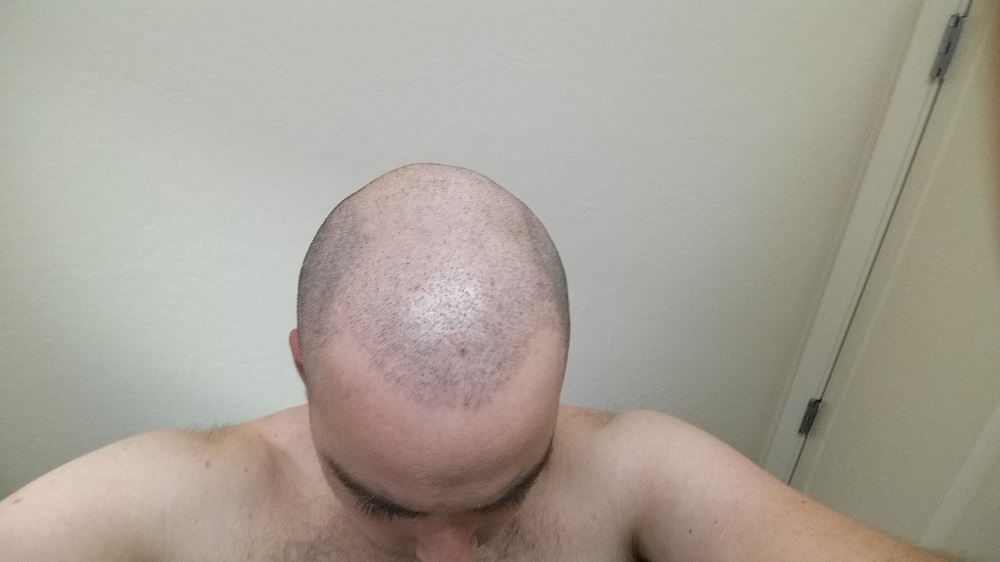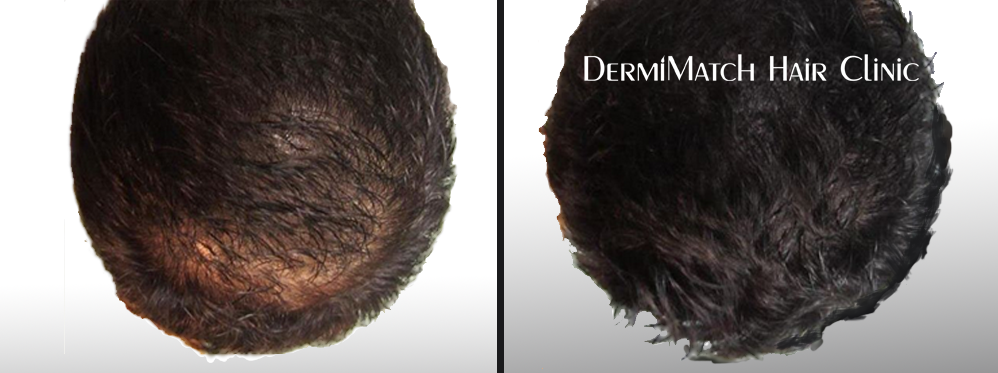No doubt, for someone with significant hair loss, a hair transplant might seem like an appealing hair restoration treatment to restore thicker locks permanently. But is a transplant surgery worth it? Let’s explore its pros and cons further.
Hair Transplant Pros and Cons
Natural-Looking Results
When you seek natural-looking results, a transplant might sound lucrative. The procedure involves taking hair follicles from areas with healthy growth and transplanting them to balding or thinning spots. So, that gives the balding area a fuller look.
Covers Large Areas
If you are suffering from diffused thinning, a transplant might be the right choice, as it covers the entire scalp. It is also suitable for those with bald spots and receding hairlines. The surgeon can easily transplant hundreds or thousands of grafts in one session.
No Daily Maintenance
Hair regrowth begins in most cases once transplanted follicles take hold, and you may not need too much maintenance either. Hair growth hereafter is similar to the way your hair usually grows.
Cons of Hair Transplantation
Expensive
One of the biggest hair transplant drawbacks is that it is costly. A transplant surgery may range from $4,000 to $15,000, depending on various factors, including number of grafts, surgeon, extent of hair loss, and number of sessions required.
Results Take Time
Results may not show up overnight. A hair transplant surgery may take 8-12 months to reveal the results. Remember, a transplant is an invasive procedure that takes time for transplanted follicles to stabilize. Hair growth starts only once the follicles have stabilized. It is expected to experience hair shedding 2-8 weeks after the procedure. Some additional hair loss around transplanted areas can occur 1-2 months after the procedure due to shock loss of native hairs. That means your hair may look even thinner during this time.
Pain/Discomfort
An invasive procedure is more likely to cause pain, swelling, and discomfort. Hair transplantation is still a surgery that requires incisions in the scalp, either through strip harvesting or FUE extraction. So, there is a risk of infection, bleeding, and reaction to anesthesia, besides extreme pain and discomfort. A transplant is more likely to cause permanent visible scarring.
The scars may appear unsightly, and you may regret having undergone a hair transplant.
May Need Additional Procedures
If you suffer from large areas of balding, you may need multiple transplant sessions after 8-12 months for the best results. That means you have to spend more on the procedure.
Not a Cure for Hair Loss
If you are looking for a solution to hair loss, then a hair transplant might not help. Ongoing loss around transplanted areas may continue unless the underlying cause is addressed.
You must consult a board-certified dermatologist to determine if a hair transplant is the right option.
Besides, if you are looking for a less invasive, less expensive, and more permanent solution to hair loss, you might want to try scalp micropigmentation.
Trust SMP Experts
SMP is a non-invasive hair restoration treatment that conceals hair loss and can hide all scalp problems, including hair loss due to dry scalp conditions. The best Arizona SMP practitioners understand your hair loss fears and can help you camouflage the same with scalp micropigmentation.
But trust only the experts and not a tattoo artist for the same. DermiMatch Clinic is the right place to head in search of SMP experts in Arizona.


